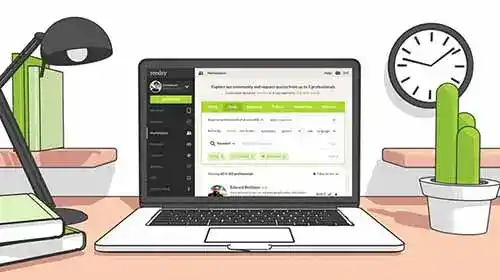Blog •
Posted on Jan 26, 2024
Going Freelance After Twenty Years in Academic Publishing
About the author
Reedsy's editorial team is a diverse group of industry experts devoted to helping authors write and publish beautiful books.
More about the Reedsy Editorial Team →Linnea Gradin
The editor-in-chief of the Reedsy Freelancer blog, Linnea is a writer and marketer with a degree from the University of Cambridge. Her focus is to provide aspiring editors and book designers with the resources to further their careers.
View profile →Eli Bortz is a developmental editor and publishing consultant who, before going freelance, worked as editor-in-chief for the University of Notre Dame Press, acquisitions editor for Vanderbilt University Press, and acquisitions editor for the University Press of Florida. He received his M.A. from the University of Florida and has worked extensively in early Atlantic world colonial history and archaeology, US and Latin American political history, and extremist political violence studies, among other areas. He lives in South Bend, Ind. with his wife Meredith and daughter Ingrid.
“I sweat blood for 5 years, and he corrects my spelling.” – Grady Tripp, Wonder Boys
Getting hooked on history
I was hooked on the written word by the time I was 15, raised on a diet of Indian In The Cupboard and the like. But as a history geek hoping to dive deeper into early American history and — living in St. Augustine, Florida — Spanish colonial history, I was struggling to find books that spoke to me.
Then, one day browsing my high school’s library bookshelves, I found a book that would change my life: Spanish Missions of La Florida, edited by Bonnie McEwen and published by the University Press of Florida in 1993. Here, at last, was the book of my dreams: in-depth history, unapologetic technical language, and jammed with the level of detail I craved. 80 percent of that text probably flew directly over my head, but the die was cast. This was the type of book that would later fuel a career in academic publishing that would last nearly 2 decades.
Becoming an acquiring editor
When I first encountered McEwen’s volume that day in 1995, I was a high school freshman; 8 years later, I was presented with an opportunity to work at the University Press of Florida as an editorial assistant in the acquisitions department while I finished my graduate degree. Over the span of 2 years, as I combined my studies with this assistant role, I realized I was built for book work, casting aside ambitions of pursuing a Ph.D. in history. I had no doubt in my mind that I would become an acquiring editor in the university press world. And so I did.
From 2006 to 2022, I served as acquiring editor at three university presses, including an exhausting stretch as editor in chief at the University of Notre Dame Press. But like all things, forces of nature (or in my case, the bureaucracy of higher education) compelled me to a new path. And if it wasn’t for Reedsy, I probably wouldn’t still be living that young dream I seized upon long ago.
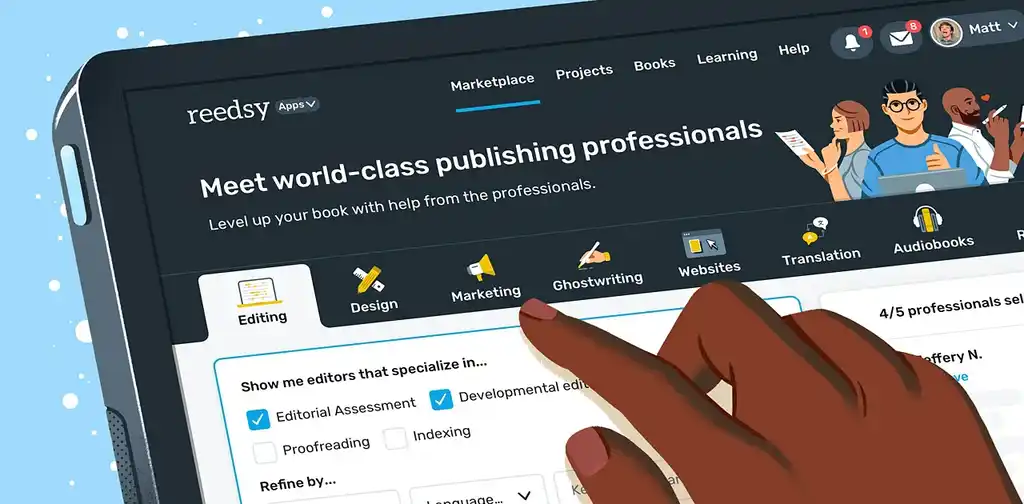
JOIN OUR NETWORK
Supercharge your freelance career
Find projects, set your own rates, and get free resources for growing your business.
Working in academic publishing
The position of acquisitions editor within a publishing house can often feel more like “acquisitions” with the joy of “editing” as a rare privilege or, depending on the crush of schedules, almost an afterthought. My daily work revolved around author relationship building and management, and it was work I excelled at because I genuinely loved the books we were putting out.
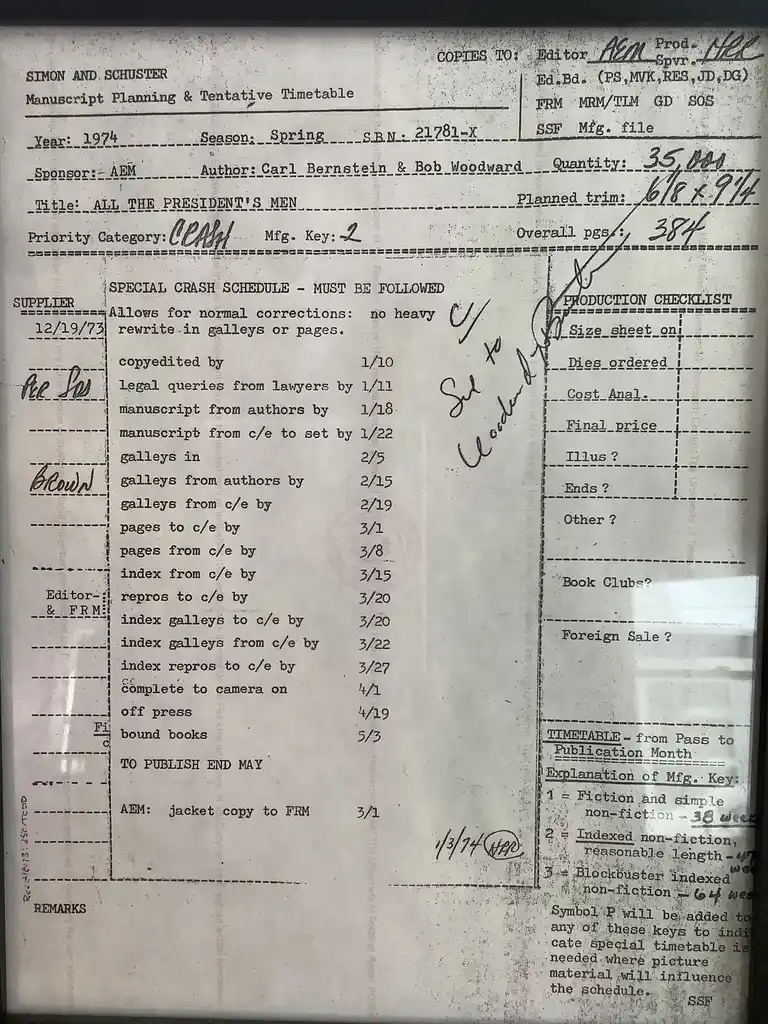
Working as an acquiring editor involves lots of paperwork, with the occasional editing. Simon & Schuster title budget for publication of All the President’s Men, 1974. (Courtesy Harry Ransom Center, University of Texas at Austin.)
Academic publishing should serve, in the best of times, as a showcase for compelling work from the best scholars in any given discipline. A university press is, after all, supposed to represent its parent university’s contribution to scholarship, which is a hell of a fascinating task. Often this work can be inaccessible to readers outside a particular discipline, but in the best of cases you find authors who can present their ideas with such compelling language or discipline-shattering insight that you manage to intrigue a wider audience. Historian Annette Gordon-Reed, for example, published Thomas Jefferson and Sally Hemings: An American Controversy with the University of Virginia Press in 1998, and essentially renewed our understanding of the true ties the Hemings family had with Jefferson and his family. She followed up on this line of research to produce The Hemingses of Monticello with W.W. Norton in 2008, rightly taking home the Pulitzer Prize in History and the National Book Award.
In recent decades, we’ve also seen university presses with a revitalized focus on regional and community issues, publishing books written by authors unattached to any university system. They’re doing it for love of the written word, which is what we saw in 2020 when West Virginia University Press published Deesha Philyaw’s debut short story collection The Secret Lives of Church Ladies, claiming the PEN/Faulkner Award for Fiction and a finalist spot for the National Book Award for Fiction that year. This is commercial-level publishing at its finest, run by decidedly other-than-commercial publishing houses. You can see how a young editor could find limitless inspiration for decades in this type of environment.
So, amidst the contract negotiations, staff meetings, academic conference travel, seasonal catalog planning and administrative duties, it was the quiet moments I found to develop and guide an author’s vision that sustained me. Sadly, as the job evolved, these moments came few and far between. Developmental editing — the true unpacking of a manuscript and the process of rebuilding in concert with the author — became a casualty of the modern higher education apparatus. And so it was, with mixed feelings, that I departed the university press world in 2022, almost precisely 19 years (to the month) after my initiation.
Setting out on my own
During my career in academic publishing, I don’t know that I ever took stock of what it really means to accumulate almost two decades of experience in your field. I certainly didn’t have time to think about how this experience could work for me outside the academy. I realized I had been too busy to focus on networking, or even to really consider what my career would be without being affiliated with an official publisher. It was with all this swirling in my mind that Reedsy entered my radar in late 2022 as a real possibility.
Joining Reedsy
The best guidance I received after I left the university press world was in the form of an email from an old colleague, which contained the basic hyperlink to join Reedsy. If it hadn’t been for that note and for the introduction to the platform, I probably would have said farewell to publishing.
🔥Hot tip: If you’re a freelancer on Reedsy who knows another excellent publishing freelancer, you can get a referral bonus. Read more about it here.
I started as a skeptic when I was first listed in March 2023, but by Christmas I was a believer. Here’s why: Reedsy wants you to do your homework. If your background is right for their platform, you’ll be fine, but I was impressed by how rigorously they want you to prepare your profile. I had no guide to follow in my freelance journey, so I relied on instinct as I chose which areas to highlight as I crafted my profile. History and political science was a given, but I wanted to see what I could do with fiction as well. Reedsy let me have a chance!
Rediscovering my passion
It's fiction in particular that introduced me to a new world of writers. I had grown so skeptical of any market for fiction until I began to see the quality of work before me. On Reedsy, I encounter new and experienced authors every month who share my passion for books. These are really good writers, writing really good stuff. Their passion has renewed my own desire for this work, and having the opportunity to learn from and work together with a truly global cohort of authors was just one of many pleasant surprises in store for me on Reedsy.
Here's another nice surprise, which I only realized when I looked back on my first 10 months or so as a freelancer here: there was never a single day or week or month that didn’t see me with a pretty full plate of projects. I didn’t expect that, if only because I assumed a cutthroat level of competition awaited me as a newcomer to freelancing.
As I write this, my desk includes a manuscript by a Nigerian journalist seeking to publish his first book based on his work, a doctoral student writing about growing up in Haiti, a family history of early Spanish colonial settlers in California, and a theological novel. I’m also researching sources for an author writing about independent politics in the United States.
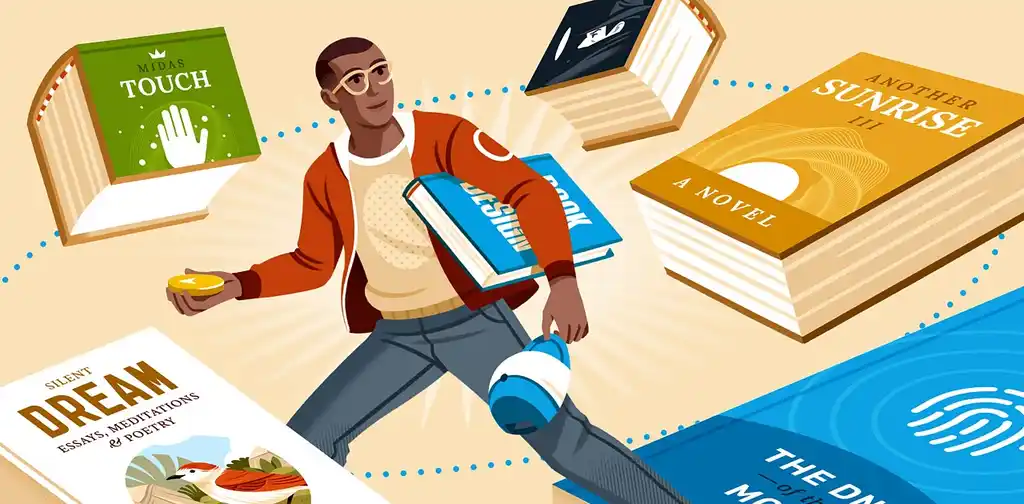
JOIN REEDSY
Find exciting new projects
We connect publishing professionals with our community of 1,500,000 authors.
Any skepticism I had about Reedsy has been proven wrong by a year of solid, steady and fascinating work. It’s more than I could have possibly hoped for during my inaugural year on this platform. So if you meet the selection criteria, don’t be scared if it’s a quiet start for you at first; Reedsy knows what they’re doing, and they demonstrate this every week for me.
Taking in the view from the new world
What’s shocking to me in all this is how very similar my freelance work routine is to the work rhythm I’ve known for twenty years. I frankly wasn’t prepared for that, as certain as I was that my work life would dramatically change outside the academy. Not so, thanks to Reedsy.
My daily plate of work in the acquisitions departments of university presses was a mélange of email catchups, updates to a dozen or two authors on their manuscript’s status, and the raw editorial work of preparing a project for production or final publication approval by the editorial board. In my last year in the office, I worked with archaeologists, historians and political scientists, anthropologists, and reporters.
These days, my daily schedule as a freelance editor still consists of email catch ups and updates to a half dozen or so authors, but also the beautiful line-by-line work of developmental and copy editing. I work with authors from all over the world, writing fascinating books. All of this is coming directly from Reedsy, but it’s the commonalities to my old routines that startles me.
Deciding my own workload
It’s not easy to learn to pace yourself, especially as you exercise your developmental muscles again, but as a freelancer, the paperwork is minimal and the staffing and overhead virtually non-existent: the only obstacle in front of you is yourself. If you are used to a relentless march forward and piles of office admin, as I was for twenty years, be prepared to appreciate a more humane workload and permit yourself a less stressful operation when you go freelance. Above all, you will learn to love the minutiae of shaping a book again, with the only limits being those imposed by yourself. For me, it’s my desk, my copy of the Chicago Manual of Style, and any sunshine I can obtain throughout the day.
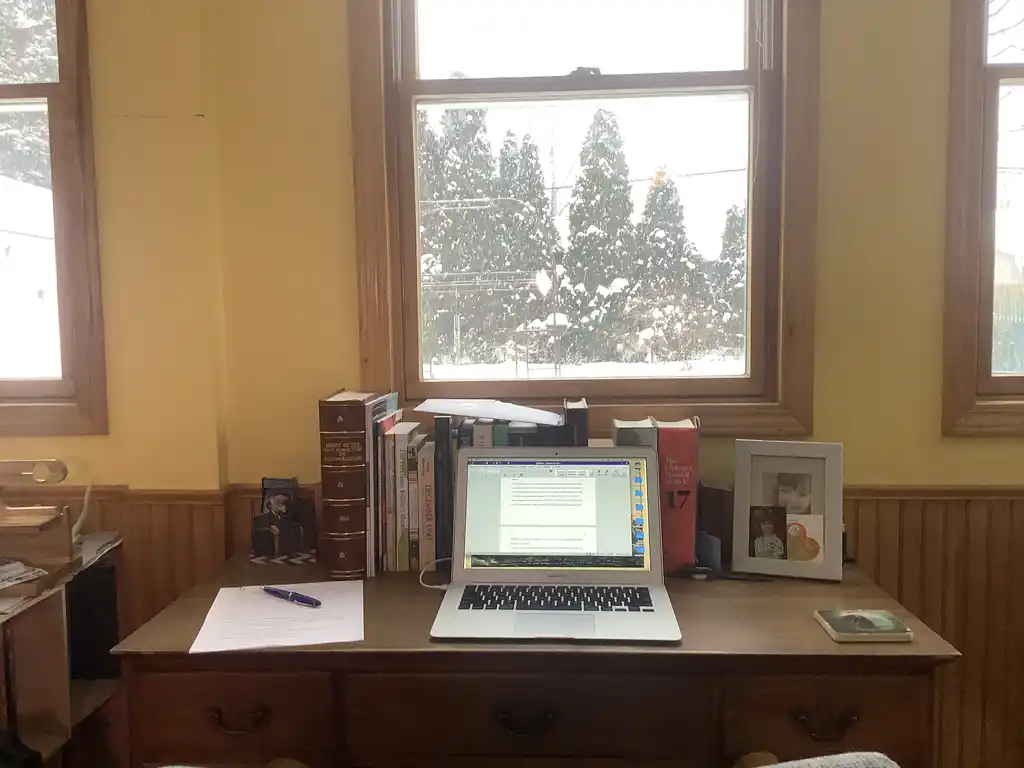
When I left the world of academic publishing, I thought my life would drastically change. Now, instead of giving up those dreams I had as a 23-year-old starting his first job in the business, I get to rekindle my love for the work on a daily basis, thanks to Reedsy. It’s truly a new world.

